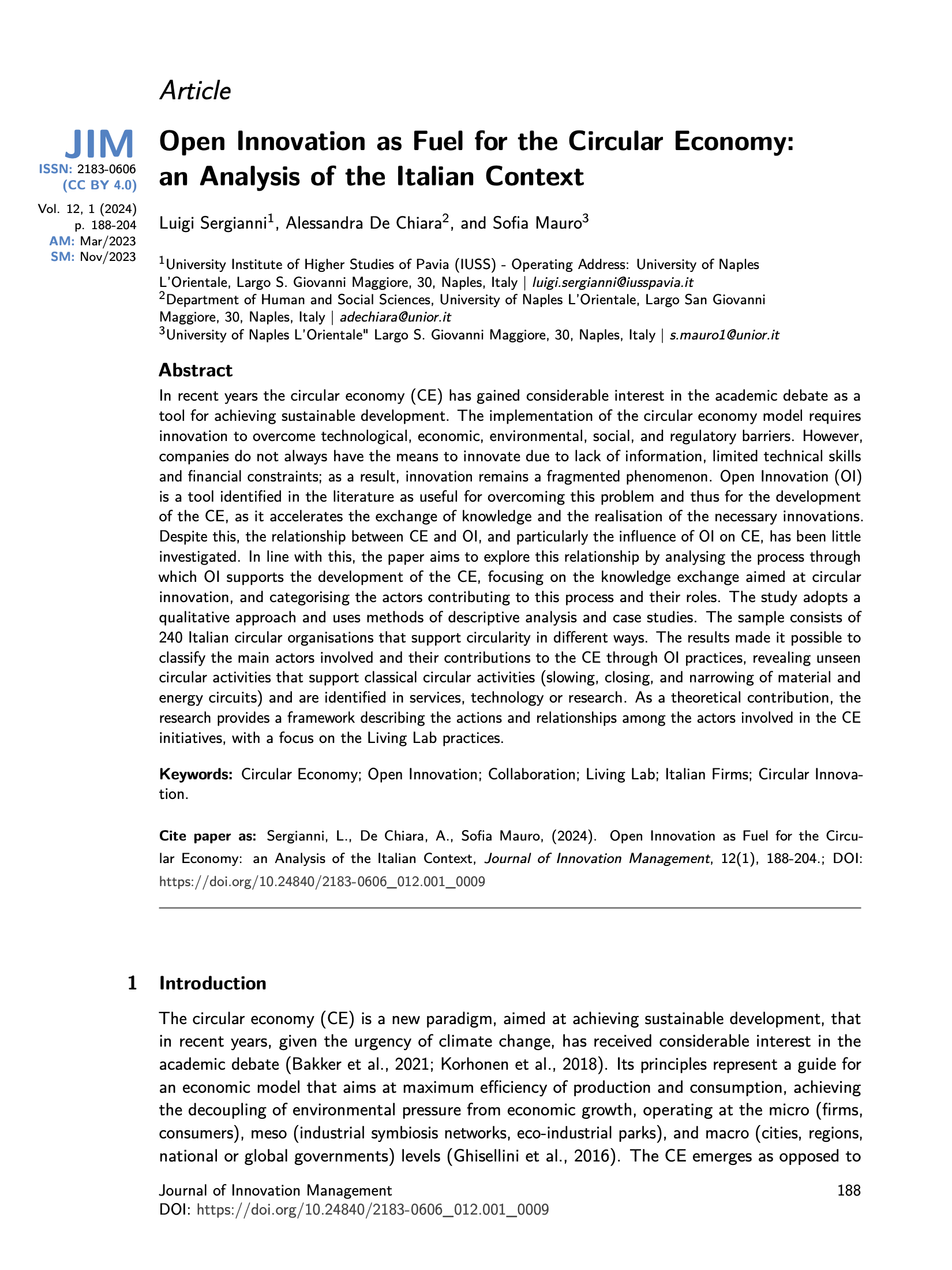Open Innovation as Fuel for the Circular Economy: an Analysis of the Italian Context
Main Article Content
Abstract
In recent years the circular economy (CE) has gained considerable interest in the academic debate as a tool for achieving sustainable development. The implementation of the circular economy model requires innovation to overcome technological, economic, environmental, social, and regulatory barriers. However, companies do not always have the means to innovate due to lack of information, limited technical skills and financial constraints; as a result, innovation remains a fragmented phenomenon. Open Innovation (OI) is a tool identified in the literature as useful for overcoming this problem and thus for the development of the CE, as it accelerates the exchange of knowledge and the realisation of the necessary innovations. Despite this, the relationship between CE and OI, and particularly the influence of OI on CE, has been little investigated. In line with this, the paper aims to explore this relationship by analysing the process through which OI supports the development of the CE, focusing on the knowledge exchange aimed at circular innovation, and categorising the actors contributing to this process and their roles. The study adopts a qualitative approach and uses methods of descriptive analysis and case studies. The sample consists of 240 Italian circular organisations that support circularity in different ways. The results made it possible to classify the main actors involved and their contributions to the CE through OI practices, revealing unseen circular activities that support classical circular activities (slowing, closing, and narrowing of material and energy circuits) and are identified in services, technology or research. As a theoretical contribution, the research provides a framework describing the actions and relationships among the actors involved in the CE initiatives, with a focus on the Living Lab practices.
Article Details
Authors who publish with this journal agree to the following terms:
- Authors retain copyright and grant the journal right of first publication with the work simultaneously licensed under a Creative Commons Attribution License that allows others to share the work with an acknowledgement of the work's authorship and initial publication in this journal.
- Authors are able to enter into separate, additional contractual arrangements for the non-exclusive distribution of the journal's published version of the work (e.g., post it to an institutional repository or publish it in a book), with an acknowledgement of its initial publication in this journal.
- Authors are permitted and encouraged to post their work online (e.g., in institutional repositories or on their website) prior to and during the submission process, as it can lead to productive exchanges, as well as earlier and greater citation of published work (See The Effect of Open Access).

